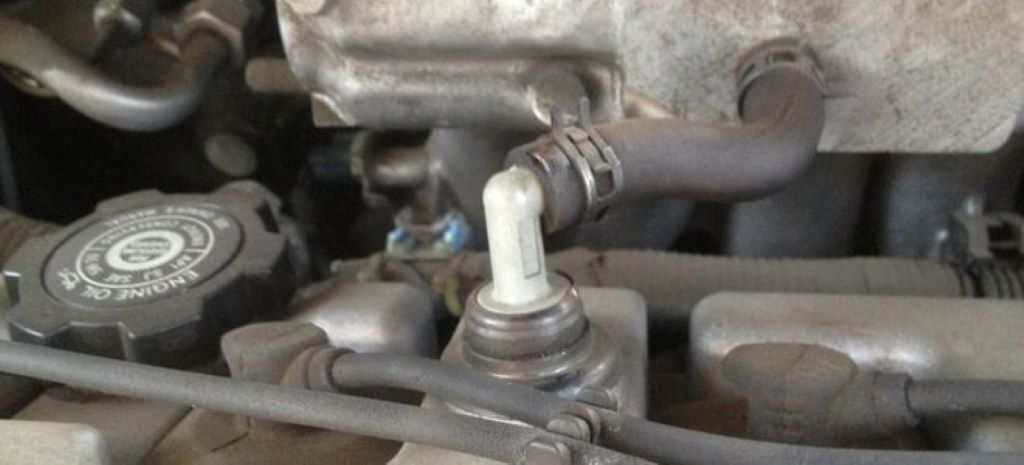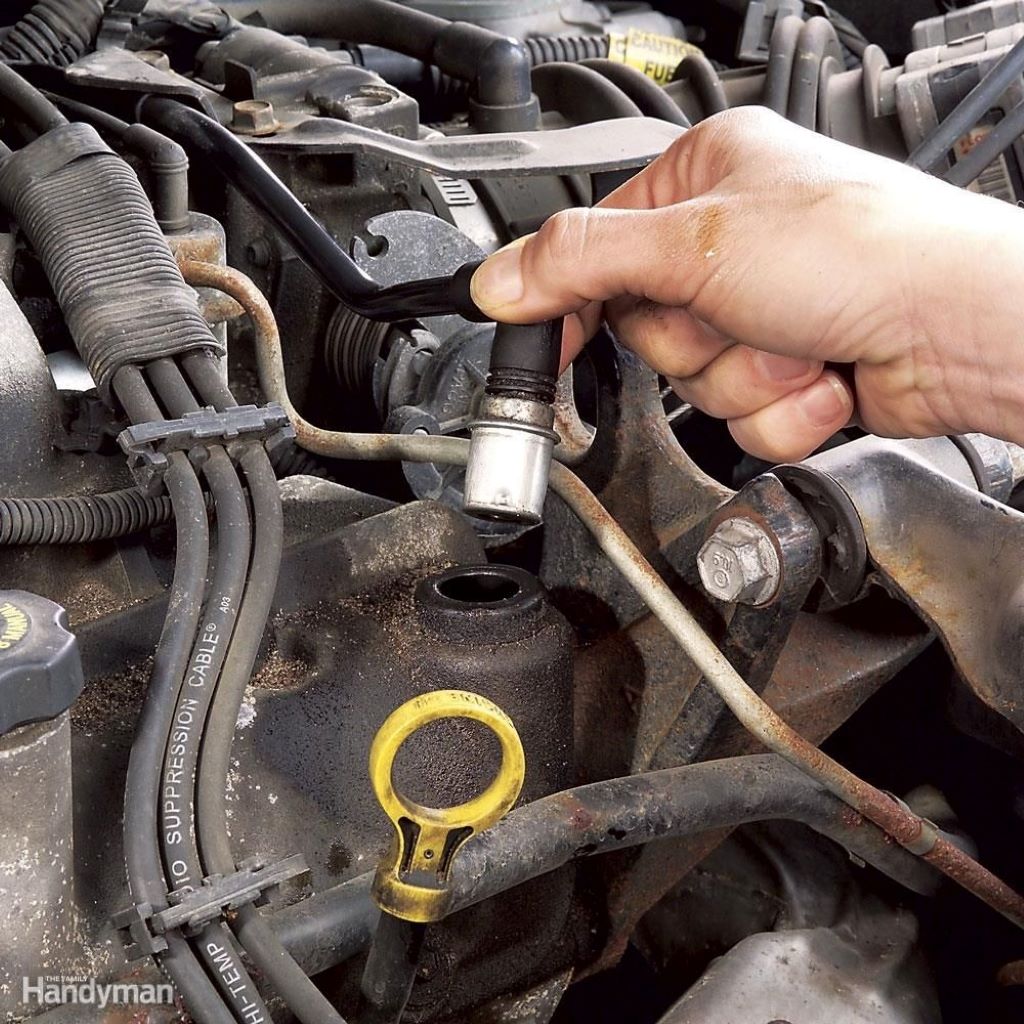Effects of a Clogged PCV Valve on Oil Consumption

10 Proven Ways to Protect Your Car From Salt Damage During Winter
December 31, 2024
Homemade Milk Spray for Controlling Viral Diseases in Cucumber Plants
January 1, 2025A clogged PCV valve can spell trouble for your car, leading to increased oil consumption, engine inefficiencies, and even potential mechanical damage. Understanding the effects of a clogged PCV valve on oil consumption is essential, as many car owners are unaware of this small yet crucial component that maintains proper engine function. In this guide, we’ll dive deep into how a clogged PCV (Positive Crankcase Ventilation) valve affects oil consumption and provide actionable insights to keep your car running smoothly.
If you’re curious about car maintenance essentials, explore Tradecarhub for comprehensive guides and resources.
Table of Contents
ToggleUnderstanding the Role of the PCV Valve
The PCV valve is a vital component of your car’s emissions system. It works by regulating the flow of gases between the crankcase and the intake manifold, reducing harmful emissions while maintaining optimal engine pressure. A properly functioning PCV valve ensures that unburned gases are recirculated into the engine for combustion, reducing oil contamination and preserving engine performance.
When this valve becomes clogged, it disrupts the balance of pressure within the engine. This imbalance can lead to oil being forced into the combustion chambers, resulting in increased oil consumption and a host of other issues.
Signs of a Clogged PCV Valve
Detecting a clogged PCV valve early can save you from costly repairs. Watch out for these warning signs:
- Increased Oil Consumption: A common symptom, as excess pressure forces oil into areas it shouldn’t be.
- Engine Misfires: An irregular air-fuel mixture caused by improper ventilation can trigger misfires.
- Poor Fuel Efficiency: Increased oil consumption often correlates with a drop in fuel economy.
- Sludge Buildup: Oil contamination leads to sludge, which can clog engine components.
- Illuminated Check Engine Light: A faulty PCV valve can trigger a check engine warning.
Each of these signs indicates that it’s time to inspect and possibly replace your PCV valve.
How Oil Consumption Is Affected by a Clogged PCV Valve
When the PCV valve is clogged, excess pressure builds up in the crankcase. This pressure pushes oil past seals and into the intake manifold or combustion chamber, where it burns along with fuel. As a result, your vehicle may consume oil at a much faster rate, requiring frequent top-ups.
Moreover, burning oil contributes to carbon deposits on critical engine components like valves and pistons, reducing engine efficiency over time. If ignored, this can lead to severe engine damage, such as worn piston rings or damaged gaskets.
Interesting Fact:
According to a study by the Society of Automotive Engineers, vehicles with malfunctioning PCV valves have up to 20% higher oil consumption rates than those with a fully functioning system.
How Long Can You Leave a Car Without Starting It in Cold Weather?
Cold weather exacerbates problems associated with a clogged PCV valve. Prolonged inactivity can cause sludge buildup, making it even harder for the valve to function properly. Curious about the risks of leaving your car idle for too long in freezing conditions? Learn more about how long can you leave a car without starting it in cold weather.
By starting your car regularly and ensuring the PCV valve is clean, you can prevent additional strain on the engine caused by cold-weather oil thickening and sludge accumulation.
Why Does a Clogged PCV Valve Lead to Engine Damage?
The knock-on effects of increased oil consumption include reduced lubrication, overheating, and accelerated wear on engine components. When oil burns in the combustion chamber, it produces harmful deposits that interfere with the engine’s operation. Over time, this can lead to catastrophic failures such as:
- Worn Piston Rings: Excessive oil in the combustion chamber leads to faster ring wear.
- Blown Gaskets: High crankcase pressure can damage seals and gaskets.
- Catalytic Converter Failure: Burning oil produces residues that can clog the catalytic converter, leading to costly repairs.
Preventing Oil Consumption Issues: Regular PCV Valve Maintenance
Routine inspection and maintenance of the PCV valve are essential for optimal engine performance. Here are practical steps to keep your valve in check:
- Inspect Every 30,000 Miles: Replace the PCV valve during routine services or as recommended by your vehicle’s manual.
- Check for Sludge: Remove the valve and inspect for sludge or clogging.
- Listen for Noises: A functional PCV valve often produces a clicking sound when shaken.
10 Proven Ways to Protect Your Car From Salt Damage During Winter
Replacing a Clogged PCV Valve
Replacing a clogged PCV valve is a straightforward process that can often be done at home with basic tools. Here’s how:
- Locate the Valve: Typically found on the valve cover or connected to a vacuum line.
- Remove the Old Valve: Disconnect the hose and unscrew the valve.
- Install the New Valve: Securely attach the new valve and reconnect the hose.
Always consult your vehicle’s manual for specific instructions. If in doubt, seek professional help to ensure proper installation.
You Might Enjoy: Drive Safely in Windy Weather
FAQs
What causes a PCV valve to become clogged?
The primary culprits are oil vapors and sludge buildup. Over time, these deposits restrict airflow, leading to a clogged valve.
How often should I replace my PCV valve?
Most manufacturers recommend inspecting or replacing the PCV valve every 30,000 to 50,000 miles, but this varies by vehicle.
Can driving with a clogged PCV valve damage my engine?
Yes, prolonged driving with a clogged valve can increase oil consumption, cause sludge buildup, and lead to significant engine damage.
What are the costs associated with PCV valve replacement?
The cost of replacing a PCV valve ranges from $10 to $100 for parts, with labor costs adding another $50–$150 if performed by a mechanic.
Are there any long-term effects of increased oil consumption?
Yes, excessive oil consumption can damage the catalytic converter, reduce engine efficiency, and lead to costly repairs.
What’s the best way to prevent PCV valve problems?
Routine maintenance, regular oil changes, and periodic inspections of the PCV system are the best ways to prevent issues.
Conclusion
Understanding the effects of a clogged PCV valve on oil consumption is critical for every vehicle owner. By addressing this issue promptly, you can save on repair costs, improve your car’s efficiency, and extend its lifespan. Regular maintenance and timely replacement of the PCV valve are small investments that go a long way in preserving your engine’s health.


